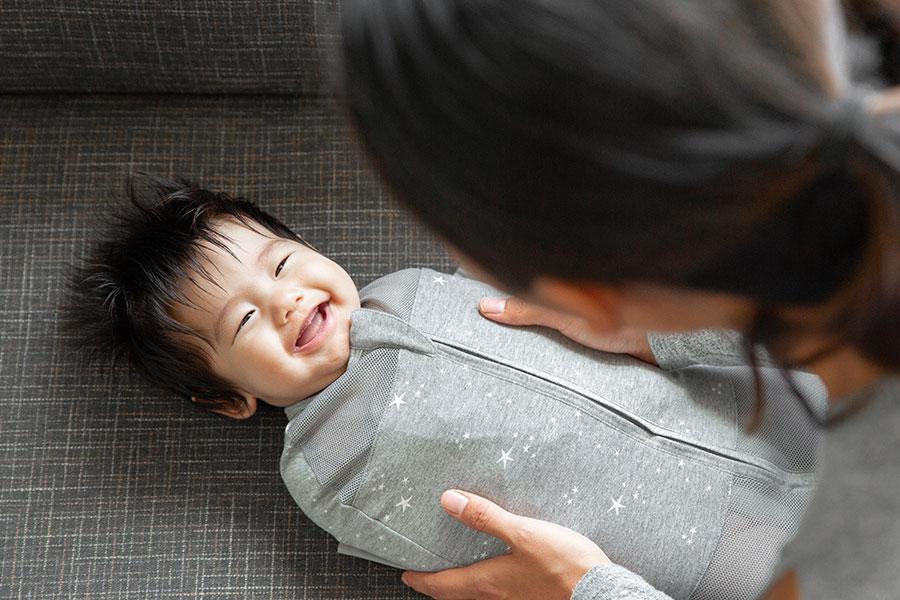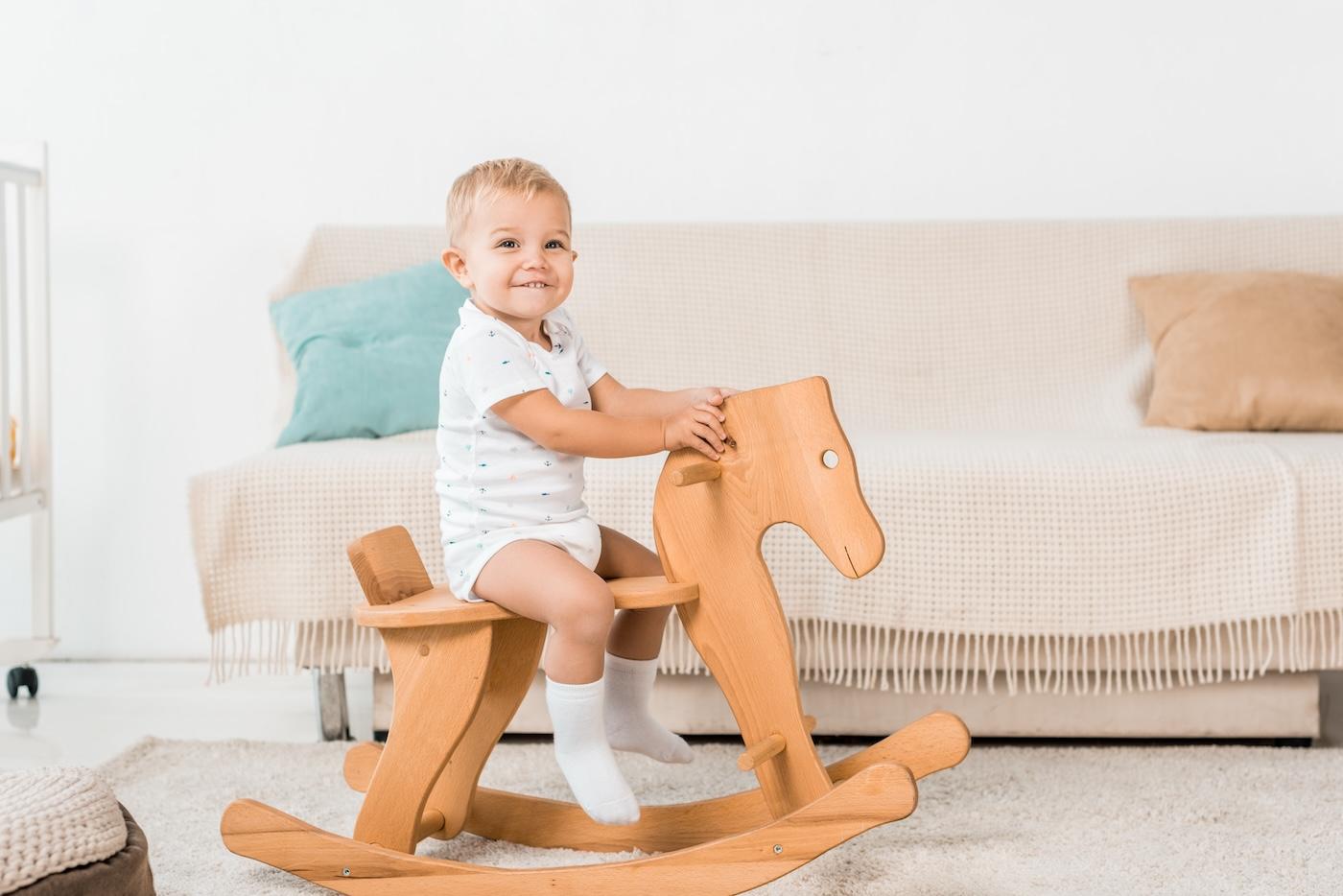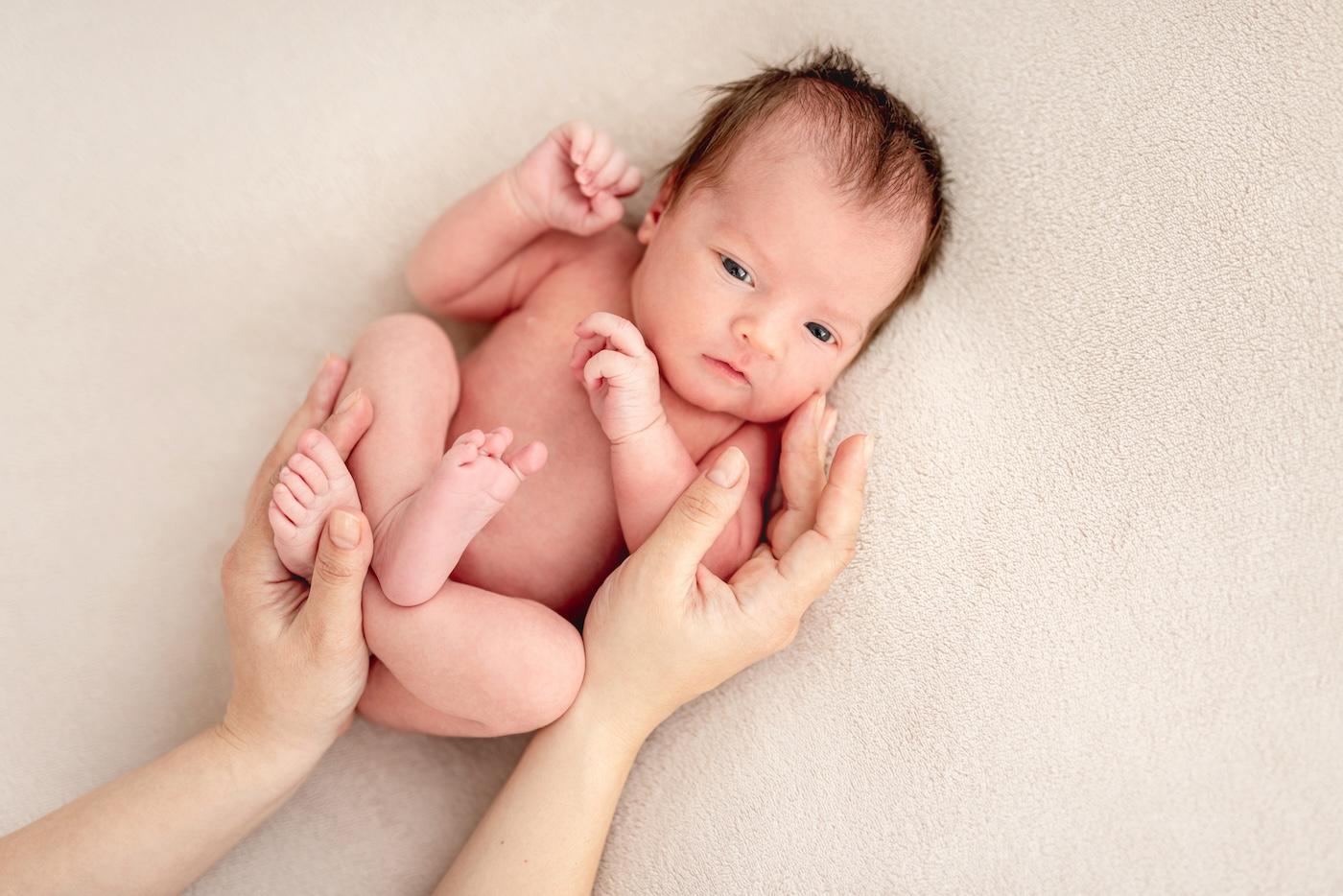BABY
When to Stop Swaddling Your Baby
The safest time to swaddle your little one.

Written by
Dr. Harvey Karp

Are you confused about when to stop swaddling your baby?
For centuries, mums and dads have swaddled babies. Why? Because it is so effective for calming infants and helping them sleep better. Thanks to modern medical research, we now understand just how important that is.
Infant crying and parent exhaustion often trigger marital stress, child abuse, postpartum depression, infant sleep deaths (from unsafe sleeping practices), breastfeeding struggles, car accidents, maternal obesity, etc. Studies even show that improving a baby’s sleep significantly reduces the risk of obesity in the early years. So, it turns out that swaddling—with its ability to reduce fussing and improve sleep—is a critical tool for improving the health of the whole family!
When to Stop Swaddling
- The short answer: Swaddling must stop when your baby can roll. This can happen as early as 2 months.
- The longer answer: Swaddling actually helps prevent rolling to the stomach (a SIDS risk factor) so you do not want to stop prematurely. The good news is there is a new kind of baby cot with built-in swaddle that keeps babies on the back called SNOO Smart Cot. This new technology allows for safe swaddling for up to 6 months.
How Long and When Should a Baby Be Swaddled
As swaddling has surged in popularity over the past 15 years, so have concerns and controversies around this ancient practice. Some doctors now warn parents to stop swaddling at 2 months for fear a baby might roll to the stomach…and not have free hands to push up and liberate their face to breathe. Even the prestigious American Academy of Pediatrics (AAP) recently announced that parents should wean swaddling when infants start to roll (which can happen as early as 2-3 months).
That sounds logical, but here is where it gets confusing: The AAP also recommends that babies only sleep on the back during the first 6 months and that they do not sleep in the parents’ bed for the first year. That is interesting because swaddling makes it harder for a baby to roll to the side or stomach, and it has been shown to lessen a parent’s temptation to bed share. So, when wrapping stops early, achieving these guidelines becomes more challenging.
What is a parent to do? When should swaddling be stopped?
How and When to Wean Swaddling
Infants are happiest—and sleep the best—when we “recreate” the womb (through swaddling, shushy white noise, and soothing rocking) during the first 3-4 months after delivery. They benefit greatly from a so-called 4th trimester.
In general, babies do best when swaddling lasts for 4-5 months. Then, you can start the weaning process by wrapping your baby with one arm out. If she continues to sleep well for a few nights, you can stop swaddling completely. (If she starts middle-of-the-night awaking again, restart swaddling and try the one-armed wrap again in a month…and every month thereafter until it works.)
But, if your baby starts trying to roll over, you will need to stop swaddling fairly quickly…just as the AAP recommends. The trouble is that weaning swaddling is much harder when babies are only a few months old. At this age, they often still need womb sensations to help them stay asleep and to keep them from waking frequently.
That is why—if you must stop swaddling at 2-3 months—it is extra important to use white noise as a sleep cue for all naps and nights. Gentle rocking motion is another fantastic cue, but beware, only swings that recline all the way flat are safe for your precious baby.
Is there any way to avoid this type of post-swaddling crisis? Actually—for the very first time in history—the answer is…YES!
SNOO: The First Cot with Safe Swaddling…Every Time!
To solve these uncertainties, my team invented the world’s one and only cot that gives babies the many benefits of swaddling...with none of the risks!
SNOO Smart Cot is the only baby cot that keeps infants sleeping safely on the back for all naps and nights, thanks to the unique SNOO Sack swaddle, which clips into the cot. We are proud to say that this makes SNOO…the safest baby cot ever made!
![[object Object]](https://cdn.sanity.io/images/301lhh0a/production/d2c168d9efbe604a3492bd4b9f634c5a36d54e6d-600x361.jpg?w=1200&auto=format&q=75&fit=max)
Also, the specially designed SNOO Sack is:
- Vented…to prevent overheating
- Loose in the legs…to keep it hip safe
- Zippered…so it can not unravel
SNOO is called a “smart sleeper” because it delivers the soothing 4th-trimester sensations babies love so much...in just the right doses. SNOO intelligently chooses the exact level of white noise and calming motion that will work best to soothe your child’s fussing and aid sleep!
Aid Sleep, Stop Swaddling Your Baby, and Increase Safety
Mums and dads love SNOO’s ability to help sleep, but it also means parents are less likely to become sleep-deprived, which may reduce breastfeeding problems, postpartum depression, marital stress, and the temptation to fall asleep with their babies in unsafe locations, like on a couch or adult bed. (In the UK, the risk of cot death is 6x higher for babies who are either placed on or roll to the stomach.)
SNOO is the only sleep solution that keeps your baby safely on the back—all night long—as recommended by the Royal College of Pediatrics and Child Health's safe sleep advice, and the SNOO Sack is a landmark breakthrough in swaddling safety. And finally, it puts an end to the confusion on when to stop swaddling. In SNOO, you can swaddle worry-free until you are ready to transition your little one to the cot, around 6 months of age.
Disclaimer: The information on our site is NOT medical advice for any specific person or condition. It is only meant as general information. If you have any medical questions and concerns about your child or yourself, please contact your health provider. Breastmilk is the best source of nutrition for babies. It is important that, in preparation for and during breastfeeding, mothers eat a healthy, balanced diet. Combined breast- and bottle-feeding in the first weeks of life may reduce the supply of a mother's breastmilk and reversing the decision not to breastfeed is difficult. If you do decide to use infant formula, you should follow instructions carefully.
SHARE THIS ARTICLE
PARENT PICKS
Bestsellers



















